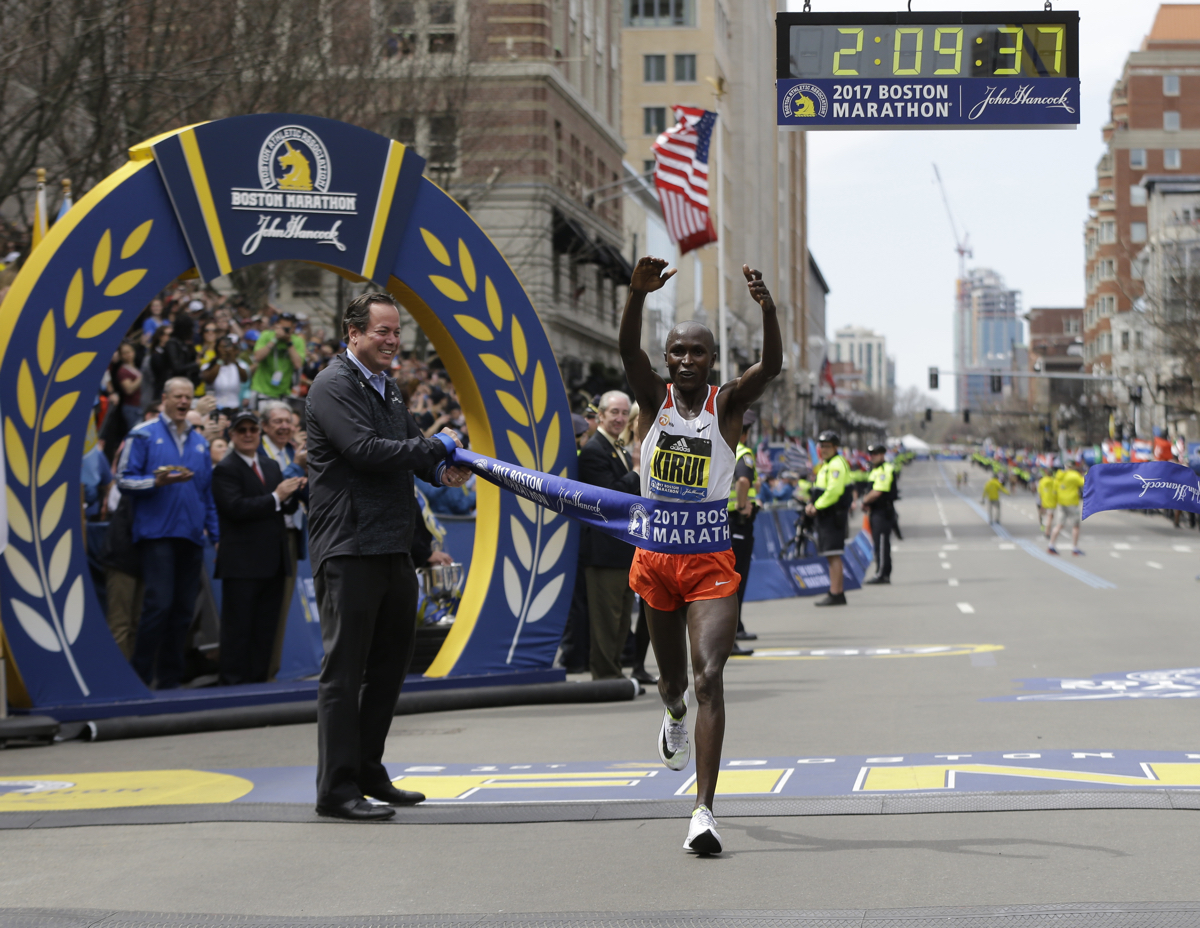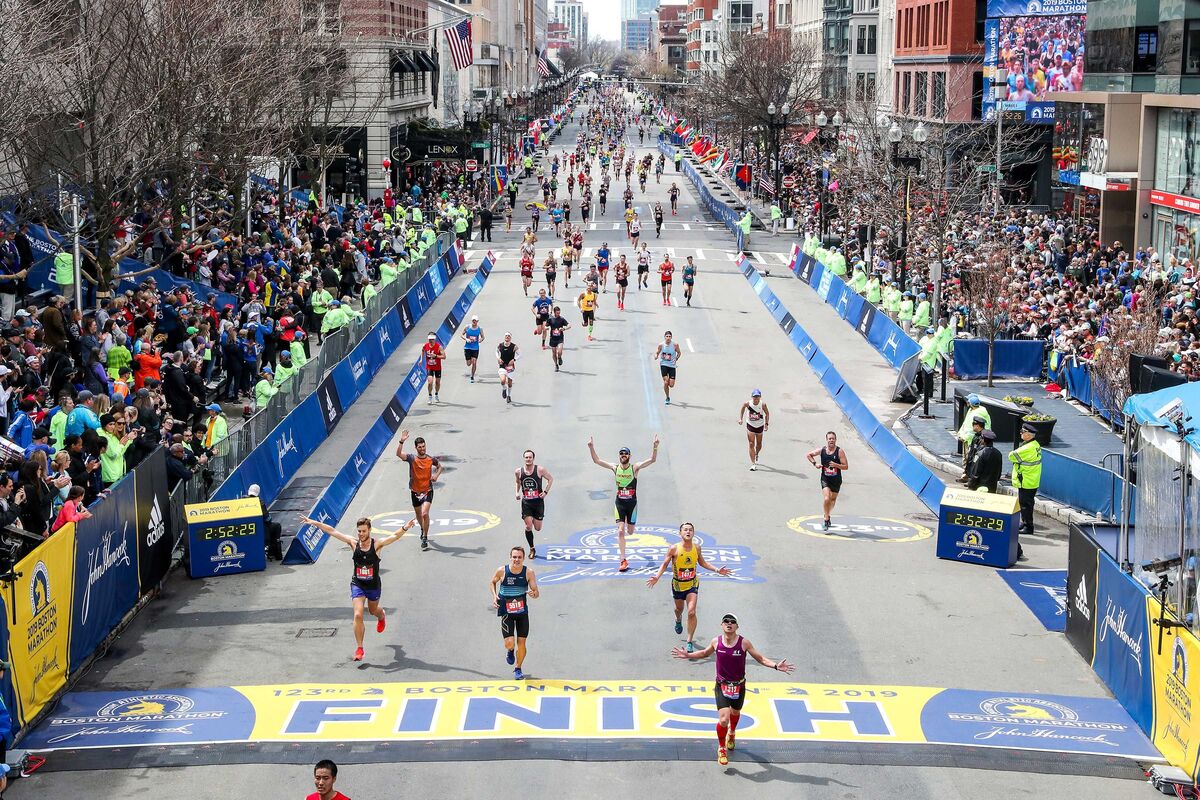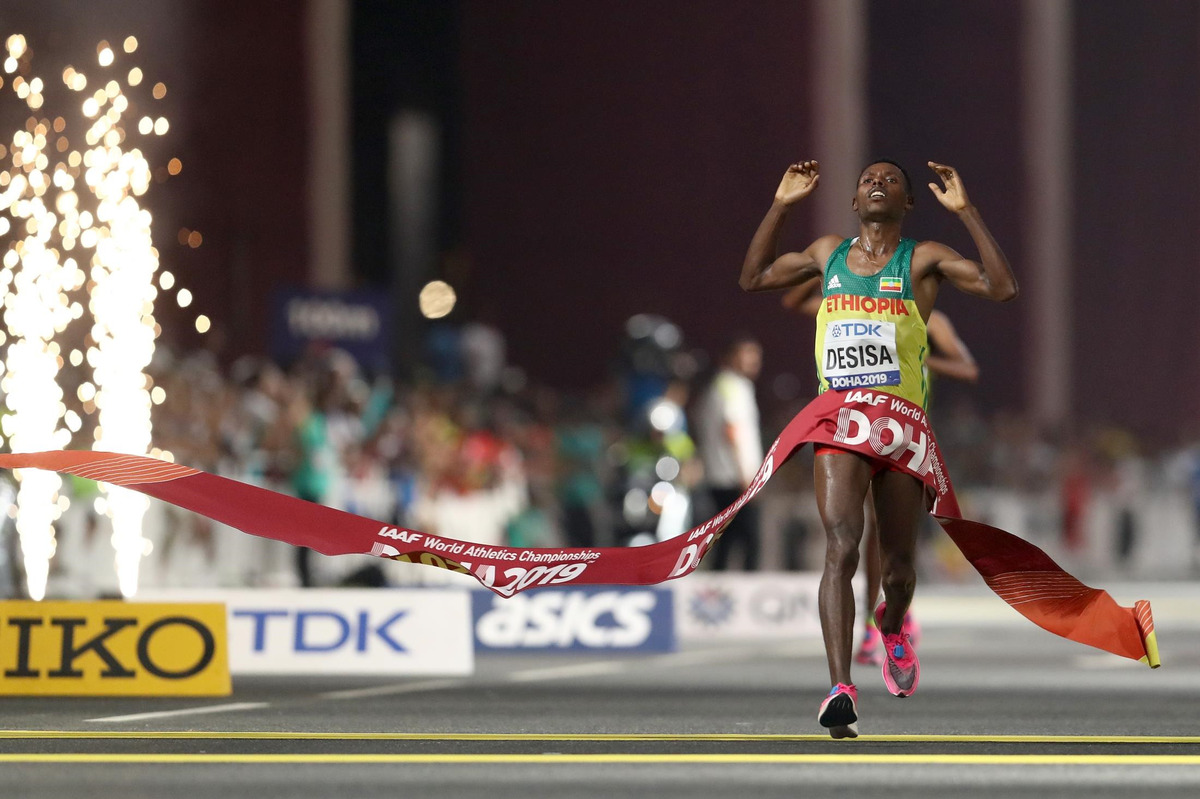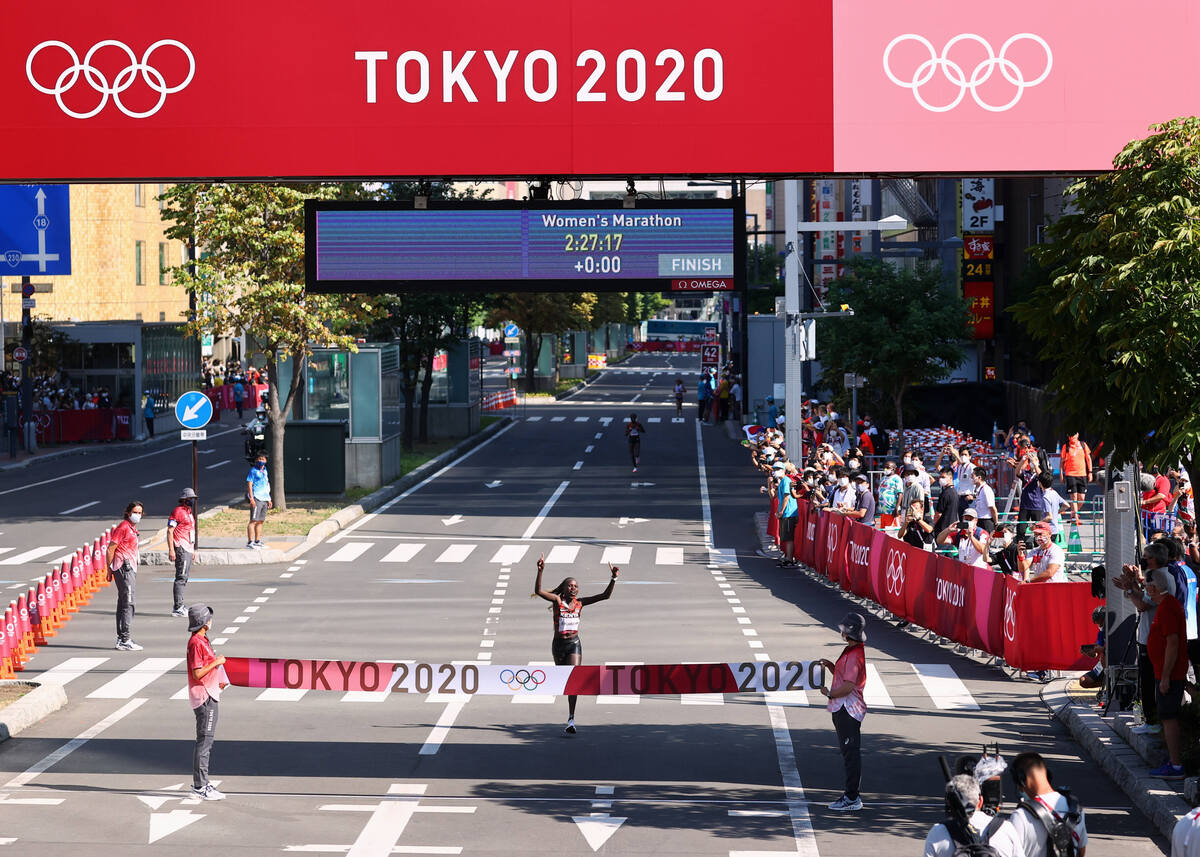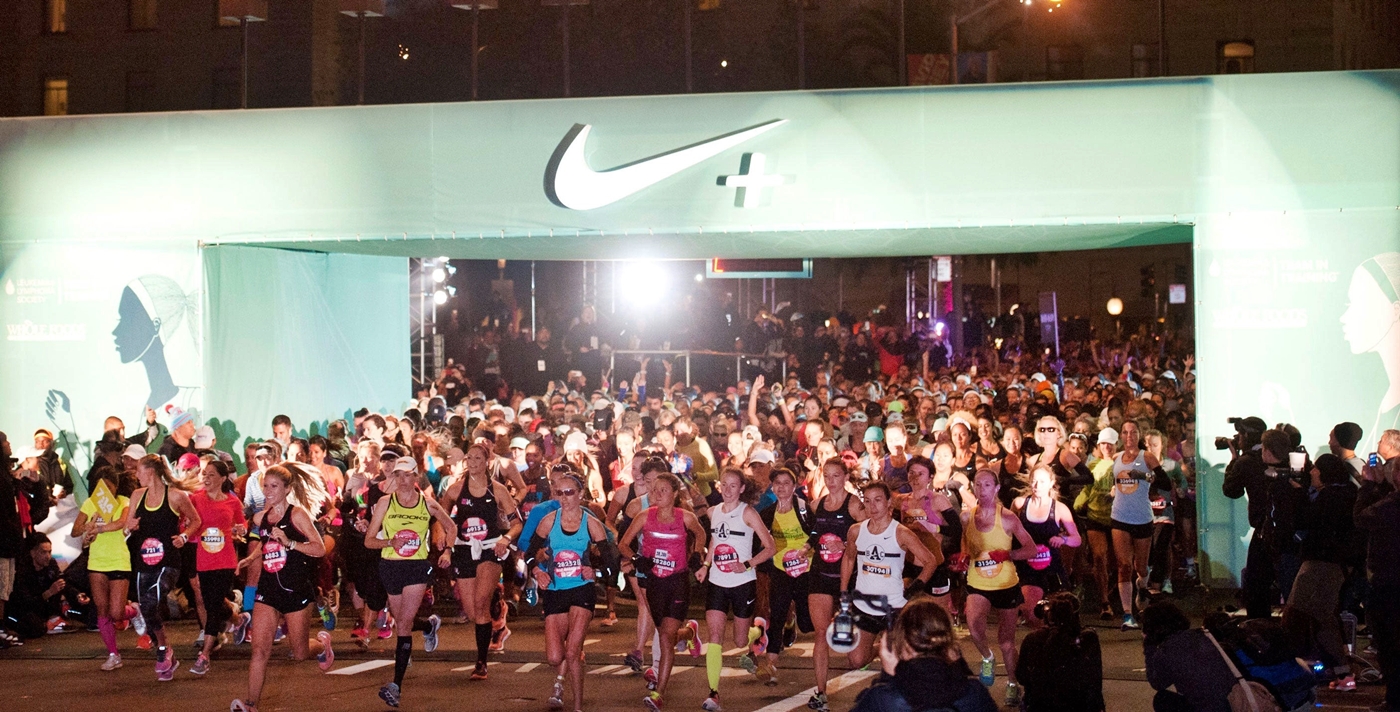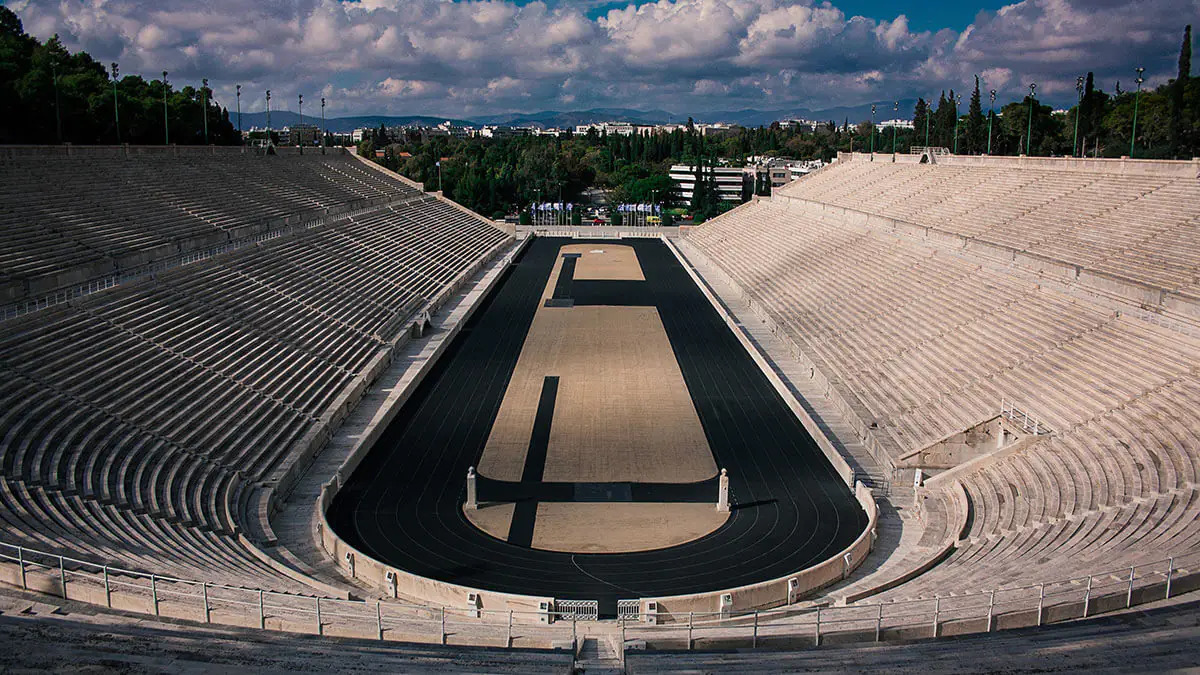

Featured
Where Did Marathon Come From
Modified: January 2, 2024
Discover the fascinating origin of marathon races in this featured article. Uncover the rich history and traditions behind this iconic endurance event.
Introduction
Marathon, one of the most iconic long-distance races in the world, has a rich and fascinating history that dates back to ancient times. This grueling event has captured the imagination of athletes and spectators alike, showcasing the endurance and determination of the human spirit.
The origin of the marathon can be traced back to ancient Greece, where it was an integral part of the ancient Olympic Games. The story behind the marathon is steeped in legend and mythology, adding to its mystique and allure.
Throughout history, the marathon has evolved and gained significance, becoming a symbol of human achievement and resilience. From the ancient Battle of Marathon to the modern-day international marathons, this enduring race continues to inspire and challenge individuals from all walks of life.
In this article, we will explore the fascinating origins of the marathon, delve into the legendary tale of Pheidippides, examine the historical importance of the Battle of Marathon, and examine how the marathon has grown in popularity and reverence over the centuries.
So, lace up your running shoes and join us on this journey through time as we uncover the captivating history of the marathon.
The Origin of Marathon
The origin of the marathon can be traced back to ancient Greece, where it was a prominent athletic event in the ancient Olympic Games. The idea of running long distances as a competitive sport was deeply ingrained in Greek culture, and the marathon was born out of this tradition.
The concept of the marathon can be credited to Herodotus, the Greek historian. According to his accounts, the first marathon-like race was held in 490 BCE. The race was a momentous event, commemorating the Battle of Marathon between the Greeks and the Persians.
The Battle of Marathon was a pivotal moment in history, with the Greeks emerging victorious against all odds. Legend has it that after the battle, a Greek soldier named Pheidippides ran from the battlefield to Athens, a distance of approximately 26 miles, to deliver the news of the victory.
Pheidippides’ remarkable feat of endurance inspired the creation of the marathon as a competitive event. The distance he covered became the standard distance for marathon races, and the story of his run lives on as a testament to the human spirit.
It is important to note that while the story of Pheidippides is steeped in myth and legend, the historical accuracy of the events is often debated. Some historians believe that the tale was a later invention to add a mythical origin to the marathon. Nonetheless, the legend continues to capture the imagination of runners and spectators worldwide.
The marathon was officially introduced as an event in the modern Olympic Games in 1896, with the race distance set at 40 kilometers, or approximately 25 miles. However, in the 1908 London Olympics, the course was extended to 26.2 miles to accommodate the British royal family’s viewing preferences.
Since then, the marathon has become one of the most prestigious and challenging races in the world. It tests the physical and mental limits of athletes, pushing them to endure and persevere until they cross the finish line.
The origin of the marathon has left an indelible mark on the world of sports, symbolizing determination, resilience, and the pursuit of victory. It serves as a reminder that the human spirit knows no bounds, and that through discipline and training, extraordinary feats can be accomplished.
The Legend of Pheidippides
At the heart of the marathon’s origin is the captivating legend of Pheidippides, a Greek soldier who is said to have run from the battlefield of Marathon to Athens to deliver a momentous message. This mythical tale has become an integral part of marathon lore, capturing the imagination of people around the world.
According to the legend, during the fifth century BCE, the Persians launched an invasion of Greece. The battle that ensued would shape the course of history. The Greek city-states rallied together to defend their land, and one of the most pivotal battles took place in Marathon.
Pheidippides, a trained runner and a messenger, was tasked with delivering the news of the Greek victory to Athens, approximately 26 miles away. The urgency of the message fueled him, and he raced across the rugged terrain, determined to reach his destination.
The legendary run of Pheidippides became the stuff of myth and inspiration. It is said that he ran non-stop, enduring physical and mental exhaustion, as he pushed himself to the limits of his capabilities. The safety and glory of Athens were at stake, and Pheidippides understood the importance of his mission.
Arriving in Athens, he triumphantly shouted “Niki!” (Victory!) before collapsing from exhaustion. His efforts had not only relayed the news of the Greek victory but also served as a call to action, motivating the Athenians to continue their resistance against the Persian forces.
While the historical accuracy of the story is debated, the legend of Pheidippides has become inseparable from the marathon itself. His courage, determination, and sacrifice encapsulate the spirit of the race, inspiring countless runners to push their limits and conquer their own personal battles.
The marathon, therefore, is not merely a race but a tribute to the remarkable feat of endurance by Pheidippides. With each step taken by marathon runners, they pay homage to his legacy, embracing the challenges and pushing through the pain in pursuit of victory.
Even though Pheidippides’ run may exist in the realm of legend, his story serves as a testament to the power of human will and the ability to push beyond one’s limits. It reminds us that sometimes the greatest achievements come from the most extraordinary efforts.
The Battle of Marathon
The Battle of Marathon, a critical event in ancient Greek history, serves as the backdrop for the birth of the marathon race. This decisive battle took place in 490 BCE and pitted the Greeks against the mighty Persian Empire.
The Persian King Darius I, seeking to expand his empire, launched an invasion of Greece. The Athenians, along with their allies, found themselves in the path of the Persian forces and prepared for a fierce confrontation.
Under the leadership of the Athenian general Miltiades, the Greek forces assembled near the town of Marathon, strategically positioning themselves to face the impending Persian threat. Despite being heavily outnumbered, with estimates ranging from 9,000 to 11,000 Greeks against 20,000 to 30,000 Persians, the Greek army stood firm in their resolve.
The Battle of Marathon commenced, and the Greek warriors demonstrated their superior military strategy and discipline. They formed a phalanx, a tightly packed formation, effectively repelling wave after wave of Persian attacks.
As the battle raged on, the Greeks managed to break through the Persian lines and launched a counterattack. The Persians, caught off guard, were soon driven back in disarray, with the Greeks pursuing them back to their ships.
The Greeks emerged victorious, achieving an astounding triumph against all odds. The Battle of Marathon was a turning point in history, a testament to the resilience and courage of the Greek city-states.
Following the battle, it is said that Pheidippides, a trained runner and messenger, was dispatched to Athens to announce the Greek victory. His legendary run became the inspiration for the modern-day marathon race. The distance he covered, approximately 26 miles, became the iconic marathon distance.
The Battle of Marathon and its significance in shaping the course of history cannot be overstated. The Greek victory at Marathon not only prevented the Persians from advancing further into Greece but also instilled a sense of pride and confidence among the Greek city-states.
The triumph in Marathon spurred the Athenians to fortify their city and strengthen their naval fleet, ultimately contributing to the rise of Athens as a dominant power in the ancient world. The battle also symbolized the resistance of a united Greece against external threats, fostering a spirit of national pride.
The Battle of Marathon serves as a reminder of the power of courage and determination in the face of adversity. It encapsulates the indomitable spirit of the human race, inspiring people throughout history to push beyond their limits and achieve greatness.
Reverence for the Marathon
The marathon has gained tremendous reverence and acclaim over the centuries, becoming synonymous with endurance, perseverance, and human achievement. This iconic race has transcended its origins and taken on a cultural and symbolic significance that resonates with individuals from all walks of life.
One of the reasons for the marathon’s revered status is its historical connection to the ancient Olympic Games. In ancient Greece, the Olympic Games were viewed as a celebration of both physical prowess and spiritual enlightenment. The marathon, being an event in the ancient Olympics, holds a special place in the hearts of athletes and spectators alike.
The marathon also stands as a symbol of personal triumph and overcoming adversity. Running a marathon is a monumental feat that requires months of dedicated training, mental fortitude, and physical endurance. Crossing the finish line is a transformative experience, symbolizing the conquering of challenges and achieving a significant goal.
The marathon’s significance is further heightened by the stories and experiences shared by runners. Each individual who takes part in a marathon has a unique journey, a personal story of determination, and a desire to prove themselves. These stories inspire others, creating a sense of camaraderie and shared purpose.
Furthermore, the marathon holds immense cultural significance in various regions around the world. Cities like Boston, London, New York, and Tokyo host annual marathon events that draw international attention and participation. These marathons have deep-seated traditions and are deeply ingrained in the fabric of their respective societies.
Marathons have also become platforms for charitable causes and fundraising. Many runners participate in marathons to raise awareness and funds for various organizations and initiatives. The marathon community’s collective efforts to make a positive impact on society contribute to the reverence and respect that surrounds this endurance event.
The marathon’s influence extends beyond its sporting aspect. It has inspired artwork, literature, films, and even music. Artists and writers have often used the marathon as a symbol of determination, resilience, and the human spirit’s ability to triumph over adversity. The marathon’s resonance in popular culture further solidifies its revered status.
In summary, the marathon holds a special place in our collective consciousness due to its historical significance, personal triumphs, cultural importance, and symbolic resonance. It embodies the human spirit’s ability to overcome challenges, inspire others, and achieve greatness. The reverence for the marathon will continue to endure and evolve, ensuring that this iconic race remains a symbol of endurance and personal achievement for generations to come.
Modern-Day Marathons
The marathon, once rooted in ancient Greek culture, has transcended time and continues to capture the attention and participation of people from around the world. In modern times, marathons have become international events that attract both professional athletes and amateur runners seeking to challenge themselves and achieve personal milestones.
One of the most renowned modern-day marathons is the Boston Marathon, which has been held annually since 1897. It is the oldest continuously run marathon and holds a prestigious status in the running community. The race takes place on Patriots’ Day, a holiday in Massachusetts, and attracts elite runners and passionate amateurs alike.
Similarly, the London Marathon, first held in 1981, has established itself as one of the world’s major marathons. It attracts thousands of participants and iconic landmarks like Tower Bridge and Buckingham Palace serve as the backdrop for this iconic race.
The New York City Marathon, known for its diverse and vibrant course through the city’s five boroughs, is another highly regarded marathon. With a massive field of runners and a festive atmosphere, it has become one of the most popular marathons in the world.
Other notable marathons include the Berlin Marathon, known for its fast and flat course that has witnessed numerous world records, and the Tokyo Marathon, which combines modern cityscapes with traditional Japanese elements.
These marathons, along with many others, have become a global phenomenon, attracting participants from different countries and backgrounds. Runners train rigorously for months, dedicating countless hours to prepare themselves for the physical and mental challenge that lies ahead.
Marathons today not only showcase the athleticism and competitive spirit of elite runners but also embrace the spirit of inclusivity. Many marathons offer opportunities for charity runners, providing a platform to raise funds and awareness for various causes. This combination of elite athletes and individuals running for a purpose creates a sense of community and connection among participants.
The popularity of marathons has also paved the way for the emergence of unique variations, such as trail marathons, themed marathons, and ultra-marathons. These events cater to different preferences and provide runners with the opportunity to explore new challenges and experiences.
In recent years, the marathoning boom has extended to virtual races, allowing participants to run their own course and submit their results online. This innovation has made marathons more accessible to individuals who may not have the ability to travel or participate in traditional races.
Modern-day marathons not only test individual endurance but also foster a sense of camaraderie and celebration. The cheering crowds lining the marathon route, the collective energy of fellow runners, and the shared sense of accomplishment at the finish line all contribute to the unique and memorable experience of running a marathon.
As the popularity of marathons continues to grow, these events will undoubtedly remain a symbol of personal challenge, human achievement, and the unwavering spirit of determination.
Conclusion
The marathon, with its rich history and captivating legends, stands as a testament to the human spirit’s endurance and determination. From its origins in ancient Greece to the modern-day international marathons, this iconic race continues to inspire and challenge individuals around the world.
Through the legend of Pheidippides and his legendary run from Marathon to Athens, the marathon has become a symbol of personal triumph and perseverance. It represents the indomitable spirit of the human race, reminding us that we are capable of pushing beyond our limits and achieving greatness.
Moreover, the historical significance of the Battle of Marathon and its connection to the marathon race highlights the enduring impact of this monumental event. It serves as a reminder of the power of courage and determination in the face of adversity.
In the modern era, marathons have gained tremendous reverence and acclaim. They have become international events that attract elite athletes, passionate amateurs, and individuals running for a cause. These races symbolize unity, camaraderie, and the pursuit of personal achievement.
Whether it is the iconic Boston Marathon, the vibrant London Marathon, or other prestigious races around the globe, the marathon continues to capture the imagination and inspire millions of people. It has become a celebration of physical endurance and human resilience.
As we lace up our running shoes and embark on the marathon journey, we embrace the challenges, the triumphs, and the shared experience of running side by side with fellow participants. The marathon leaves an indelible impact on our lives, empowering us to overcome obstacles, set audacious goals, and cross the finish line with a sense of accomplishment.
So, as the marathon continues to evolve and inspire, let us keep the spirit of the marathon alive within us. Let us remember the legends, the history, and the awe-inspiring feats of endurance. And most importantly, let us embrace the marathon as a symbol of human potential, reminding us that with determination, grit, and unwavering perseverance, we can conquer any challenge that comes our way.

